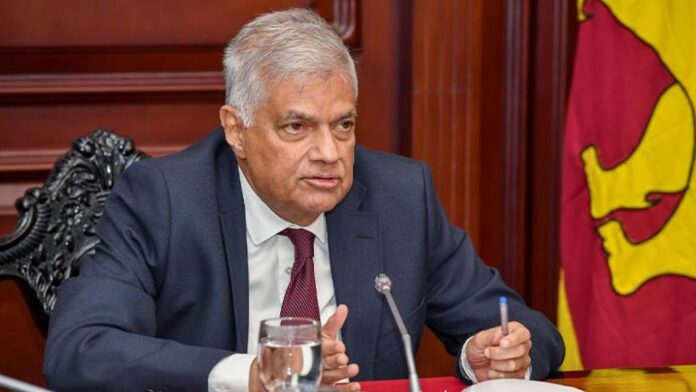PMD: During a recent discussion at the President’s Office, President Ranil Wickremesinghe commented on the potential for Artificial Intelligence (AI) technology to contribute to the country’s development.
He instructed officials from the Ministry of Technology to form a presidential task force comprising AI experts and prepare a concept paper to promote AI usage in the country. The President highlighted the potential of Artificial Intelligence in various fields, including agriculture, education, health, fisheries, and industry.
The President noted that the current annual contribution to Sri Lanka’s gross national income through computer and information technology is around USD 1.9 billion, with no known amount from AI technology. He instructed officials to develop a system to track AI contributions. Additionally, he stressed the importance of taking prompt action to increase AI’s contribution to the gross domestic product in the coming years.
Expressing his views, the President further said,
“We have identified the modernization of agriculture and fisheries, tourism, and improvement of supply centers as urgent areas for development in our economic reforms. Additionally, we have placed a greater focus on the technology industry.
As we see the world progressing with artificial intelligence, it is crucial for Sri Lanka to focus on this technology and invest in it. The private sector needs to be involved in this initiative. I called for this discussion today to seek your opinions on how we can proceed with this. How can we kick-start these programs? What are the advantages and disadvantages of investing in AI? These are some of the issues I want to discuss with you. The government plans to allocate one billion rupees for AI technology next year. To develop this technology in the country, we need to create an appropriate environment, which requires an institution and data. So, I am eager to hear your suggestions on how we can develop these programs.
We are aiming to create a digital economy and it will require a lot of effort in the coming months. Fortunately, the government has already prepared the necessary plans. However, it is important to note that only 2500 engineers are produced in our country every year. I have suggested that we should aim to produce at least 10,000 engineers to meet the demands of the digital age. When it comes to artificial intelligence, we should consider Singapore and India as role models. It is true that East Asia, South Korea, Japan, and China are making progress in artificial intelligence, but no country in West Asia has reached that stage yet. This presents a clear opportunity for us, and we must have strategies in place to implement this program promptly. In order to achieve this, we should start by improving university research departments.”
During the discussion on the integration of AI technology into the wider model of digitization in Sri Lanka, the Minister of State for Technology, Mr. Kanaka Herath, and the Secretary of the Ministry, Mr. Niranjan Gunawardena, a Senior Professor, shared their views.
The participants focused on the development of infrastructure necessary for related research activities and the latest trends in the field. The scholars who attended the discussion also expressed their views on future steps that need to be taken for the advancement of the field.
Mrs. Chandani Wijewardena, Senior Additional Secretary to the President for Strategic Affairs, along with representatives from the Sri Lanka Artificial Intelligence Association, universities, national innovation institutes, and experts in the field of information technology were among those who participated in the discussion.

